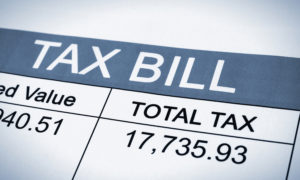
The tax season can be a nightmare for many business owners, but it shouldn’t. Taxes are not that scary – you’ll see.
As an entrepreneur, you have plenty of duties, but one of the most stressful is, without any doubt, filing your taxes. Not to mention that if you don’t file them in good time, you can deal with some penalties that can cost you. That’s why it’s advisable to organise your records constantly to meet the tax deadline on time. However, this is sometimes easier said than done, as there are many other aspects to consider. In other words, the tax season is a real adventure, but why wouldn’t you make it a fun one?
Here are some practical and valuable tips on how to survive the tax season and get your tax right:
Hire the right accountant
You cannot do accurate accounting without the right accountant; that’s why the first step to take when it comes to tax filing is to make sure you have a professional to handle these bills. Some of the most important responsibilities of an accountant include doing your taxes and preparing financial statements, but they shouldn’t be limited to this. A good accountant should also track income and spending in order to prevent a potential cash flow issue and record your net and gross profits. It’s also advisable to work with an accountant from the day one of starting your business, not just during the tax period (which can vary from state to state). Understanding the necessity of an accountant is the first step toward a smooth tax filing.
Organise and gather documents
It’s critical to prepare for the tax season in advance, and the best way to do so is to compile and organise all the documents needed. This way, you save the valuable time you can use for core purposes. It might sound tempting to gather all data over a weekend or an evening, but this is only a painful experience. Try as much as possible to stay organised all year – you’ll thank yourself at the end of the tax season. Thus, ensure expenses and income are separated in the ledger or computer and, most importantly, are precise – one mistake in accounting can cost you much. However, you don’t have to do all this manually. Technology has evolved in such a way that allows business processes automation, including accounting. So, it’s no wonder more companies have started using tax software. One of the most significant advantages of such software is that it helps you keep accurate and updated records so that when the tax season is approaching, you only have to print them (not even that in some cases).
Keep adequate records
Keeping accurate and thorough records throughout the year can be a life saviour at the year’s end. Thus, prepare your financial statements adequately to avoid problems of any type during the tax period. It means you must keep close tabs on expenses, payroll records, and previous returns. It’s also advisable to substantiate any credits and deductions for at least three years. It sounds daunting, but this is the proper way to ensure your tax is correct. Some risks associated with inadequate record-keeping include leaving deductions on the table or even dealing with an audit. You surely want to avoid such problems, so start paying more attention to your financial records. Besides, it’s not only about getting your tax right (although, yes, it’s the main purpose); think about it as a chance to keep in touch with your company’s pulse. It’s just a tangible difference when you are well aware of aspects like cash flow and net income or loss without being forced to resort to the help of someone else in this sense.
Leverage accounting software
One helpful method to make tax filing seamless is to orient yourself toward software for accounting. With digitalisation shaping the future of accounting, automating this process has become almost imperative. If you still depend on spreadsheets to manage your taxes, consider taking the software route. This way, you avoid tax return errors that are more often than not caused by humans.
Tax administration is also embracing digital transformation – HMRC (Her Majesty’s Revenue and Customs) has introduced Making Tax Digital, the next revelation in terms of VATs (Value-Added Taxes) submissions. It helps businesses of all sizes get their taxes right and survive the tax season, which proved more often than not downright stressful. Thus, if you have a VAT-registered business, you can make use of Making Tax Digital, but make sure you comply with it, that is, keep electronic records.
Allocate weekly time to track taxes
There is no way to succeed if you’re not consistent in what you’re doing. The same is with business operations. When it comes to taxes, you have to take at least one to two hours a week to balance your returns and expenses so as not to find yourself at the end of the year in an unpleasant situation where you don’t know what to start with. We know that keeping all doors open is challenging, especially when running a small business, but if you don’t pay sufficient attention to aspects like tax management, you may find yourself with all the doors closed without even understanding why.
Standard deduction vs. itemising
The last but not the least step implies choosing between the standard deduction and itemising. Depending on how much taxes you owe and other factors like your eligibility for credits, you have to decide on a deduction that best aligns with your business profile. Tax deductions are critical in the tax filing process, as they lessen your taxable income. In other words, the lower your taxable income, the less you have to pay. Thus, take your time to document these statuses and don’t jump to choose something that involves a lower taxable income because it’s possible not to fit your business.
The world of taxes is complex, but if you have the proper measures in place, you’re more than likely to survive the tax season.
Read more:
Is the tax season coming? Here’s how to survive as a small business





